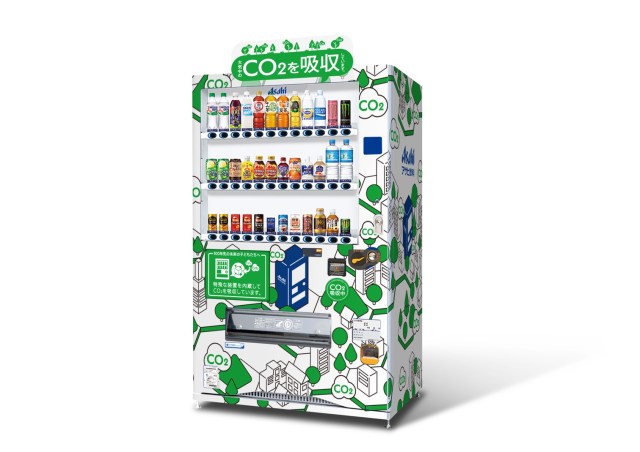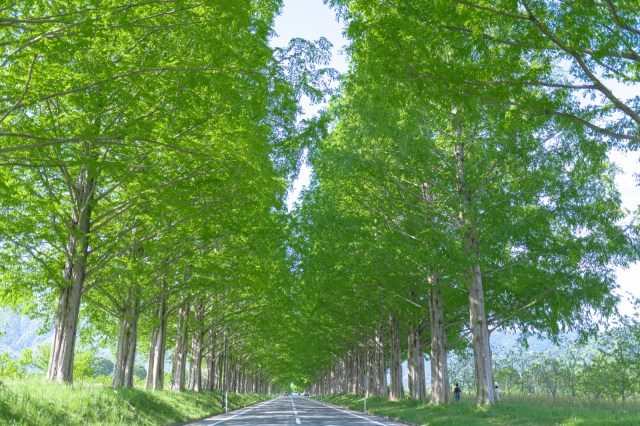Japan’s newest vending machine absorbs CO2 from the environment

Eco-friendly system turns vending machines into metallic trees.
Japan is known around the world for its vast array of vending machines, selling everything from plastic food samples right through to scary stories. Now, though, there’s a new type of vending machine attracting attention, and it’s not what it sells but how it sells that’s making headlines.
The new machine, developed by beverages giant Asahi, paves the way for a new era in automatic vending systems, because it actually absorbs carbon dioxide (CO2) from the atmosphere.
What’s more, the CO2 absorbed by the machine will then be used to make industrial materials such as fertiliser and concrete, some of which will be utilised in the building of seaweed beds in the sea, creating a “blue carbon ecosystem”. Asahi says this is the first-ever machine of its type in Japan to contribute to “the realisation of a decarbonised society”.
Making the initiative even more impressive is the fact that it’s now past the initial development stage, with patents pending for both the CO2-absorbing vending machine and the CO2-resource recycling initiative that utilises the vending machine.

That means the new machines are ready to be deployed out in the wild, with Asahi planning to install a total of 30 machines in places with high carbon dioxide levels, such as indoor environments, and outdoors in the Kanto and Kansai areas — the country’s most populous regions in and around Tokyo and Osaka — in order to compare and verify the amount and speed of CO2 absorption.
According to Asahi, vending machines work by sucking in the surrounding air, which it then uses to cool or warm the products inside. The new machines, however, contain a special material that allows the unit to absorb only CO2 from the atmosphere, essentially giving it the same function as a tree, which also absorbs CO2 from its environment.
▼ More trees means less carbon, which creates a healthier environment, and in a hay-fever-prone country like Japan, it’s a bonus if they don’t produce pollen.
 Image: Pakutaso
Image: Pakutaso
The annual CO2 absorption per unit is expected to set off around 20 percent of the CO2 emissions from the electricity used, which is equivalent to the annual absorption of about 20 Japanese cedar trees aged 56-60 years.
Following the initial rollout in June, Asahi plans for full-scale deployment of the machines from 2024. The company says it aims to continue developing materials with high CO2 absorption capacity, in order to eventually develop vending machines that are totally carbon neutral in the future.
Source, images: PR Times unless otherwise stated
● Want to hear about SoraNews24’s latest articles as soon as they’re published? Follow us on Facebook and Twitter!
Credit:

0 comments:
Post a Comment